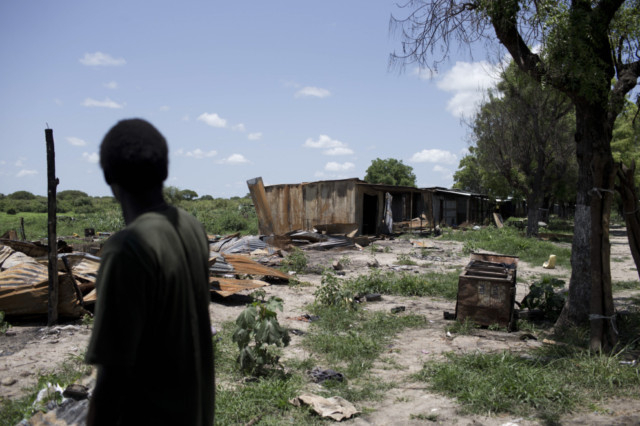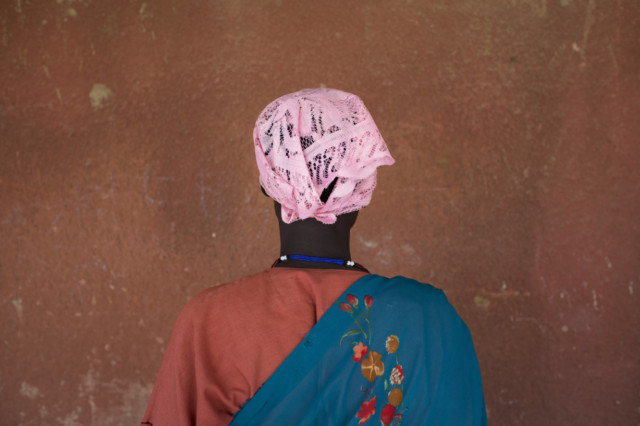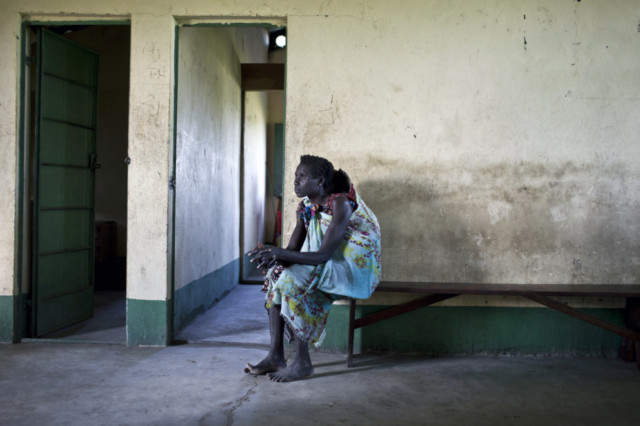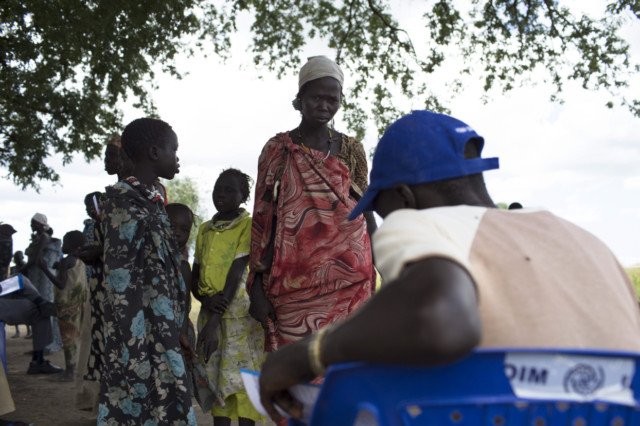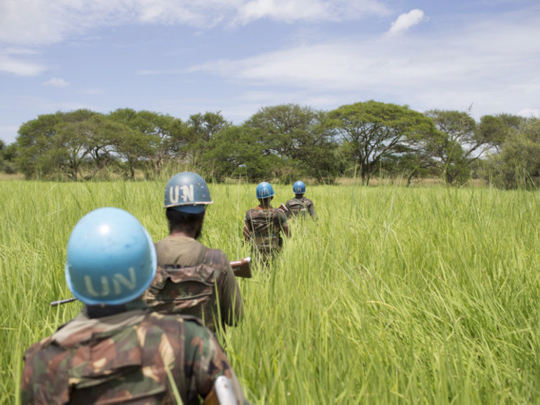
Pibor: As the international community pours billions of dollars into South Sudan in an effort to make it a viable nation, western observers are now worried that the armed forces in a country they helped create have been preying on civilians.
Witnesses have described soldiers from the Sudan People’s Liberation Army (SPLA) indiscriminately firing on busy market squares, fatally beating non-combatants and raping women.
It is not as if this young nation is lacking in challenges. Since it achieved independence two summers ago, South Sudan has been bedeviled by poverty, high infant mortality, a crippling lack of infrastructure, internal rebellion and frequent disputes over oil and the border with Sudan.
In July, South Sudan’s president, Salva Kiir, abruptly fired the entire cabinet and the vice-president, raising political uncertainty even further. But another longstanding problem — large-scale violence against civilians — has been particularly damaging, claiming thousands of lives in recent years.
“The most pressing issue is the abuses by the SPLA, by the army,” said Joshua Konyi Irer, commissioner of Pibor County, where most of the attacks on civilians have taken place.
South Sudan was established as part of an effort to end a civil war with Sudanese forces in the north that claimed more than 2 million lives. For decades, Sudanese forces killed civilians in the South, often bombing indiscriminately, part of the staggering death toll that generated international support for the separation of South Sudan.
South Sudan’s international backers have taken a huge stake in its stability and success. Last year alone, the US gave South Sudan $620 million, making it one of the top recipients of US aid in Africa. “We’ve seen very disturbing reports about abuses,” said Grant Harris, senior director for African affairs at the National Security Council.
The US had been “unequivocal” with Kiir about “the need for South Sudan to protect human rights, protect civilians and ensure accountability for anyone complicit in human rights violations,” he added.
Atrocities
A village elder from the town of Manyabol described a massacre in May where at least a dozen people were killed after the military opened fire on civilians. Government soldiers rampaged through the market in Pibor in January, killing seven civilians and burning 150 huts, local leaders said.
One Pibor resident, Mary Tarawach, said she had hoped the troops would treat her decently as long as she served them stew and bread at her tiny dirt-floor restaurant in the market here. It did not help. Sometimes they hit her, even as she was carrying a baby.
Finally, she went to work in May and found the same soldiers looting the market and destroying her business. She ran, but they caught and taunted her, accusing her of being the wife of the local rebel leader, David Yau Yau, also a member of the Murle ethnic group.
“They pushed me and they stomped on my stomach,” Tarawach said. “The child came out. The child is dead.”
The Pibor market, once thriving, “is a ghost city now,” said Peter Guzulu, coordinator for the Murle Peace Committee, a group representing local interests.
In another episode, soldiers shot and killed two women in Pibor on July 31.
“Those who will be found to have committed those abuses will actually be punished,” Barnaba Marial Benjamin, the foreign minister appointed after the government reshuffle, said last month.
Human Rights Watch issued a report this month documenting nearly 100 killings by government forces, saying, “the potential for further grave violations and violence is high,” in part because of anti-Murle sentiment. Benjamin asked for understanding of the challenges facing the weak central government and for financial support to build up troubled Jonglei state, where the violence has been concentrated.
“There’s nowhere where you can build a country within two years with such enormous difficulties,” he said.
Army campaign
The army is waging a counter-insurgency campaign against Yau Yau’s rebel forces. It includes a program to take weapons from civilians.
Colonel Philip Aguer, spokesman for the military, said more than 30 soldiers had been arrested and were being put on trial over abuses.
“The army is doing its best to investigate and take whoever will be proved committed human rights violation to court,” Aguer said.
In a military where abuses against its own troops are routine, trying soldiers is itself a significant step.
The Small Arms Survey, a research project, said it had received credible testimony from international observers that South Sudanese soldiers had “dropped ammunition on several occasions to the Lou Nuer in several locations prior and during the July attacks,” said Jonah Leff, a South Sudan analyst with the survey.
Witnesses said military helicopters took wounded Lou Nuer fighters to the hospital in the state capital, Bor, and that uniformed soldiers were among the returning fighters.
“The SPLA uniform, Khartoum uniform, you will get it anywhere even among the civilians; that does not mean they are part of the SPLA,” Aguer said. “The SPLA in its history has never sided with any community.”
Tens of thousands of Murle people in need of humanitarian assistance are still hiding in the bush, aid workers say, having lost the cattle they depend on for their livelihoods. One woman described eating leaves to survive.
Some people have begun returning to towns like Gumuruk, but many more have stayed away, or joined Yau Yau’s rebels.
The South Sudanese government contends that the Sudanese government in Khartoum is providing him with weapons and other support to wage his rebellion. One woman from Pibor named Uruyen described how five soldiers came to her home in March.
“They said, ‘Bring your gun. Bring your weapon.’ I said, ‘I am a woman. I do not have a weapon.’”
She recalled how they kicked her and beat her with sticks before taking turns raping her.
Fuelling insurgency
The military’s harsh response may be fuelling, rather than dampening, the insurgency. Relatives and community leaders say that young men feel the only place they are safe now is with Yau Yau’s forces.
A woman from Boma told how her husband, a 39-year-old Murle soldier who had fought for the SPLA since he was 13 years old, was killed along with all the other ethnic Murle in his unit.
Charles Manyang D’Awol, undersecretary in the South Sudanese Foreign Ministry, said he objected to any portrayal of Murle as innocent victims. Attacks by the Lou Nuer were reprisals for Murle raids on Lou Nuer and Dinka villages and towns, he said, which have gone on for years.
“Their aim is to take your children, your cattle and your wife if possible,” Manyang said of Murle raiders.
“What the SPLA is doing now is against Yau Yau,” he said, “not against Murle people.”
Brutal killing
Marko, a great-grandfather from Pibor who was afraid to give his last name, said he watched an old man he had known his entire life shot in the back and killed.
He said soldiers fired a heavy, truck-mounted machine gun and a PK machine gun during the attack.
Displaced residents of the town of Manyabol described a similar episode there in May.
According to an elder from Manyabol who narrowly escaped and asked not to be named out of fear of the SPLA, they were firing not just rifles but machine guns and rocket-propelled grenades, by his count killing 14 in all.
“They used any machine that they had,” he added.
— New York Times News Service


